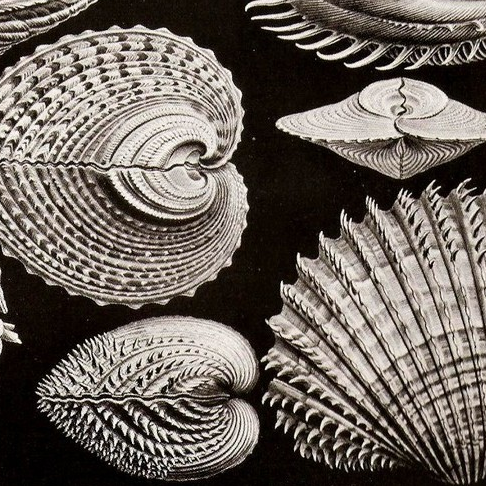Shells and Pebbles
Interesting finds on the shores of the history of science and the humanities
-
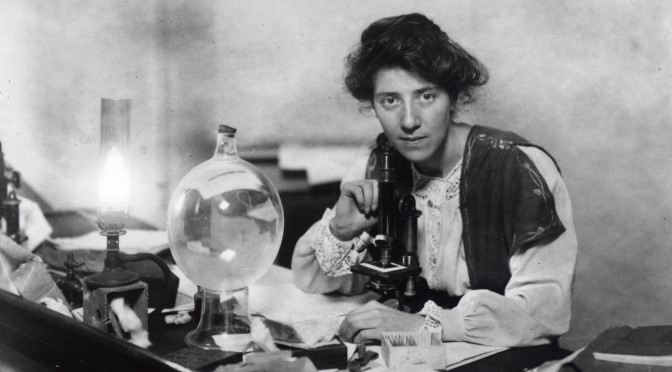
Jurassic Park, Botany and Women
By Robert-Jan Wille Classic dialogue in the classic movie Jurassic Park. The mathematician Ian Malcolm is rambling about the consequences of Jurassic Park and about the cloning of dinosaurs. At a certain moment he says: “God creates dinosaurs. God destroys dinosaurs. God creates man. Man destroys God. Man creates dinosaurs.” The witty palaeobotanist Ellie Sattler…
-
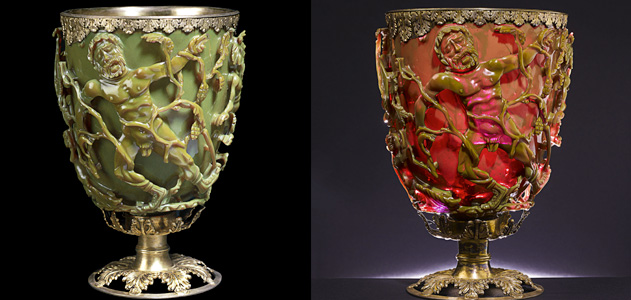
How old is nanotechnology?
By Koen Beumer Nanotechnology is new. And yet discussions about nanotechnology feature numerous references to artifacts from ancient times. Nanotechnology is said to be present in anything from stained glass in Medieval European churches to blades of eighteenth century Indian warriors. How can we make sense of these historical references?
-

Wie heeft de grootste?
Door David Baneke De geschiedenis van de moderne sterrenkunde wordt vaak beschreven aan de hand van een opeenvolging van steeds grotere telescopen. Niet zelden lijkt het zelfs op een wedstrijd: wie heeft de grootste? Ook astronomen zelf spreken vaak in die termen – kijk maar eens op de website van enkele grote astronomische organisaties (ESO,…
-
‘Knife-less’ Dissection: Functions of fold-outs in 19th century anatomical culture
By Simone Schleper Around 1900, an unprecedented panoply of anatomical fold-outs emerged and sold across Europe and North America. Examples ranged from life-size models to supplementary inserts in thick health manuals and booklet-thin charts. As illustrative devises, fold-outs responded to a growing demand for anatomical models and illustrations by a broad authorship and audience. Yet,…
-
Demarcation problems in history of science: a dialogue
By Jeroen Bouterse A physicist [P], a sociologist [S] and a historian [H] on demarcation in history of science. H: “So, I understand you hadn’t heard of Shells&Pebbles yet?” S: “I’m afraid not; what is it?” H: “It’s a blog about the history of science.” P: “Oh, then I have seen it! But there was…
-
4 new posts from naturalhistories
jeroenbouterseFor today, instead of publishing a new article, we have brushed up some older ‘shells and pebbles’ from a friendly blog: Ilja Nieuwland, Robert-Jan Wille and Andreas Weber, the authors of naturalhistories.net, are moving their and our favorite posts to ShellsAndPebbles. You can find the first batch of posts (4 in total) below. Have fun!
-
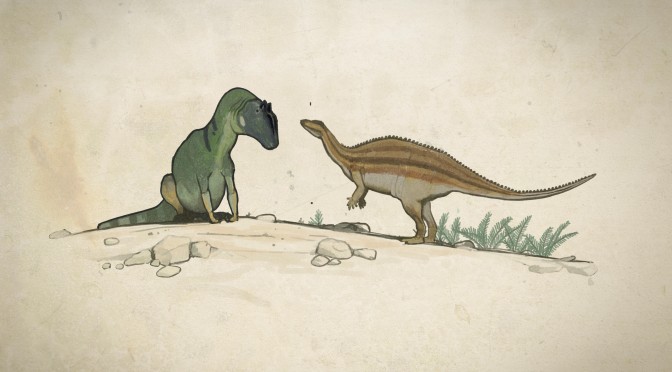
New dinosaurs, old animals
Review of: John Conway, C.M. Kosemen & Darren Naish (2012). All Yesterdays. Unique and Speculative Views of Dinosaurs and Other Prehistoric Animals. London: Irregular Books. Price: (Amazon Kindle E-book) or (Printed version via Lulu.com). By Ilja Nieuwland ‘Paleo-art’, or the art of restoring extinct life, has experienced a number of paradigmatic changes during its two-hundred-or-so-years…
-

Dutch movable stations in nature — “For a dime on the first row”?
By Robert-Jan Wille Recently, the British Antarctic Survey’s Rothera station has welcomed new guests. A group of Dutch scientists from the universities of Utrecht and Groningen and from the Royal Netherlands Institute for Sea Research arrived this season to do laboratory research, financially supported by the NWO, the Dutch NSF. Neither being able nor willing…
-

The evolution of Gerhard Heilmann’s Iguanodons
By Ilja Nieuwland The Danish artist-cum-scientist Gerhard Heilmann, who became famous for his book The Origin of Birds, published a little-known, short piece about Iguanodon a few years later, in an issue of Othenio Abel’s journal Palaeobiologica, dedicated to the Belgian paleontologist Louis Dollo. In many ways, this Iguanodon is much more ‘old-fashioned’ than his…
-
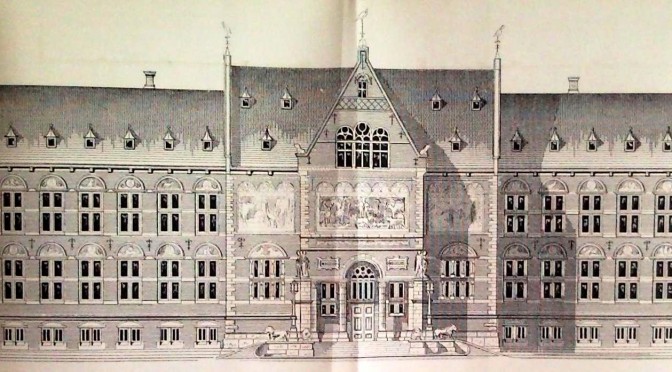
A Dutch national museum that was never meant to be
By Robert-Jan Wille In the 1870s, after the Franco-Prussian war, the art and sciences budget of the Netherlands increased dramatically. If the Dutch ever had an Victorian age in which some dreamt of cathedrals of science, it was then. In 1872-3 nearly 1,5 million guilders (quite a lot at that time) was reserved to upgrade…
-
Heisenberg en zijn fout: catastrofale gevolgen voor het Duitse atoombomproject?
Door Anne van der Linden Onder leiding van de Verenigde Staten werden de eerste atoombommen ontwikkeld tijdens de Tweede Wereldoorlog. Ook Duitse wetenschappers hielden zich in deze periode bezig met het ontwikkelen van een atoombom. Het mag duidelijk zijn dat ze hier niet in slaagden. De Nobelprijswinnaar Werner Heisenberg was een van de wetenschappers die…
-
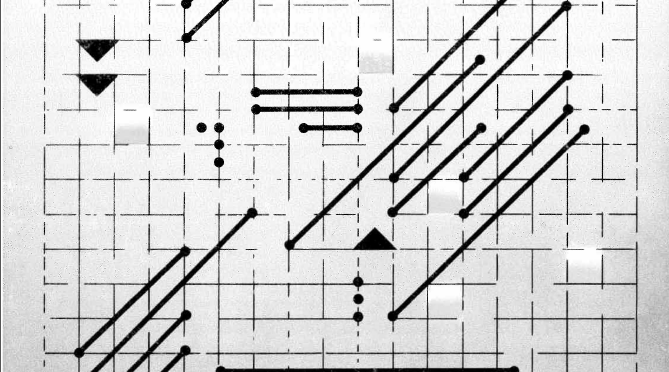
The (forgotten) Dutch attempt to stimulate IT education
By Katrin Geske In January 1984, three ministries, the Ministry of Economic Affairs, the Ministry for Science and Education, and the Ministry for Agriculture and Fishery[1] established a policy for stimulating information technology (IT) made in the Netherlands: the Information Technology Incentive Plan (the Dutch name was INformatica StimuleringsPlan, hereafter INSP). In this program, the…
-
Discussie: Professionals, leken en traumatische geschiedenis
Door Hans Schouwenburg In het geval van gezellige schapengeschiedenis mogen academische historici en geïnteresseerde niet-academici de barrières tussen hun werelden best doorbreken. Onder het genot van een lekker kopje koffie kunnen beide groepen dan samen nadenken over de beantwoording van historische vragen. In andere gevallen heeft het onderscheid tussen professionals en leken echter wel zin,…
-
De krant over wetenschap: 15 jaar later
Door Jeroen Bouterse ‘Apenvaccin mogelijk basis voor hiv-medicijn’; ‘Kleine vleermuis onthult geheim van een lang leven’. Vraagt u zich bij dit soort kopjes, en de bijbehorende artikelen, ook wel eens af wat er later van wordt? Ik heb het alvast uitgezocht.
-
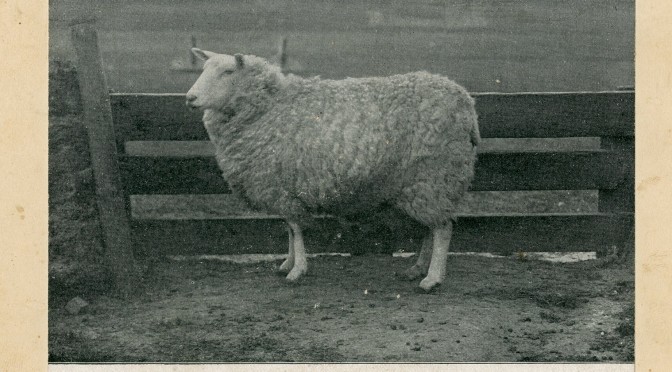
Schapen, academici en liefhebbers
Door Jesper Oldenburger Geschiedenis en geschiedschrijving zijn zeker niet enkel en alleen binnen de academische muren gehuisvest. Geschiedenis is populair en talloze niet-academici houden zich momenteel, zowel op individuele basis als binnen een historische vereniging, bezig met het verleden. Naar aanleiding van een recente trip naar het schapeneiland Texel bespreek ik de verhouding tussen academische…
-
The Power of Technology: Computing Equality in the 1980s (and How it Failed)
By Katrin Geske Realizing the demands of a modern state – think for instance of complex social security or tax systems – takes more than just a good idea and the intention to make it happen. The role of fully automated systems has increased immensely over the past 50 years and their importance was (and…
-
Of Embryos and Transmutation IV – there and back again
By Robbert Striekwold Throughout the 19th century, ideas concerning embryonic and species development were joined together in a unification that many biologists took to be self-evident. Near the end of that century they split up, however, and embryology was largely left out of the Modern Synthesis of Darwin and Mendel. That is, until several spectacular…
-
Following the Rule(s): Authority and Originality in Medieval Monastic Thought
By Lieke Smits Until the middle of the twentieth century, scholars assumed that in medieval culture authority (auctoritas) was deemed more important than originality.[1] The often-quoted expression attributed to Bernard of Chartres (d. after 1124), master in the cathedral school, that his fellow scholars were like dwarfs standing on the shoulders of giants has certainly…
-
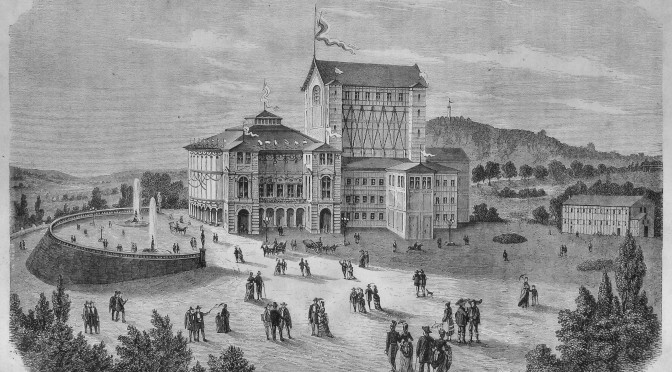
Positivisme en pianomuziek. De wankele vriendschap van Friedrich Nietzsche en Gabriel Monod
Door Camille Creyghton Gabriel Monod is enkel nog onder historici een enigszins bekende naam. Bij wie van hem gehoord heeft, roept hij waarschijnlijk associaties op met woorden als ‘positivisme’, ‘Revue historique’, en misschien met ‘seminarieonderwijs’. Daarmee houdt het wel op. Voor Friedrich Nietzsche is dat heel anders. Historici lezen van hem vooral zijn tweede oneigentijdse…
-
Herfstvakantiedienstregeling / No post today
jeroenbouterseDoor een foutje in de redactiekalender is er vandaag geen artikel. Volgende week gaat Shells&Pebbles weer verder! // Due to a mistake in our schedule, there is no blog update today. We will be back next week!
-
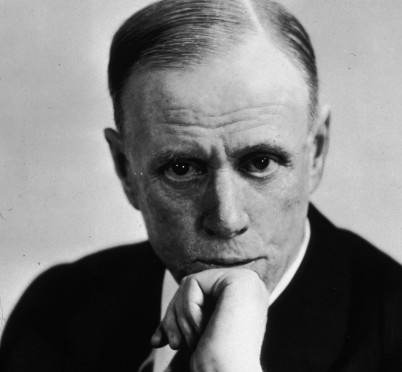
Sinclair Lewis’ Arrowsmith: Why everyone should read this 1925 medical novel
By Noortje Jacobs For my research, I came across the Pulitzer Prize winning novel Arrowsmith, written by Harry Sinclair Lewis (1885-1951) in 1925 and based upon the experiences of the (by now) famous bacteriologist Paul de Kruif (1890-1971). One of the most widely read medical novels of the twentieth century, Arrowsmith has often been lauded…
-
Philips’ Popular Manikin: Public Anatomy and Gender Stereotypes around 1900
By Simone Schleper Around 1800, the audience for anatomical knowledge was small and fairly elite. After the Anatomy Act of 1832 had put an end to the murders committed to procure bodies for dissection, the public image of anatomy became significantly less dreadful. In the following decades, popularizers, exhibitors, and publishers found ever more innovative…
-
Venster op de negentiende eeuw; of, een leven lang leren met Bouvard en Pécuchet
Door Daan Wegener Bouvard et Pécuchet (1881), Flauberts onvoltooide roman over twee mannen van middelbare leeftijd die zich toeleggen op een leven lang leren, biedt een uniek venster op de negentiende eeuw. Het is tegelijkertijd een miniatuur van de negentiende-eeuwse wetenschap, een lachspiegel waarin alle kennis verdraaid wordt, en een serieuze reflectie op contemporaine intellectuele…
-

Varkenssteden in Boedapest
Door Steven van der Laan In de kersteditie van landbouwblad De Veldbode verscheen in 1904 een klein artikel getiteld “De grootste varkensmesterij van Europa”, over een onwaarschijnlijk grote varkenshouderij in Boedapest. Dat er in die tijd varkenshouderijen op industriële schaal bestonden, is algemeen bekend: beroemd zijn de Union Stock Yards in Chicago, die in die…
